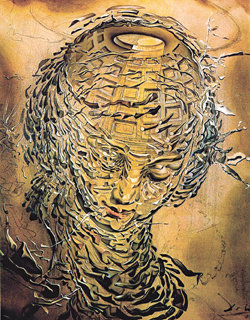Human Nature, Gifted? Or Fostered?
Human Nature, Gifted? Or Fostered?
Posted February. 27, 2004 22:33,

The Blank Slate
Written by Steven Pinker, Translated by Kim Han-young
903 pages, \40,000 published by Science Books
Elders sometimes remark to newly-married couples who hesitate to give birth to a baby, Dont worry. They are gifted in a certain aspect. The birth rate of Korea is at the lowest level in the world. It seems that newlyweds are more afraid of the other advice, that parents hold sway over their offsprings destiny, than that of the elders. Married couples who are willing to be separated for the sake of their offsprings education, are not likely at all to bend their ears to the remarks of elders, ...gifted. But, as the education of ones children cannot be easily at ones beck and call, the children do not accept the guidance of their parents despite good conditions and environment. That is the dilemma of the parents.
Considering our children who hang over several cram schools even after the formal school classes, we, Koreans, are the people who focus more on nurturing rather than nature. Gifted . . . innate . . and instinctive are considered as remnants of the old times. In particular, these words are sort of taboo to newly-married couples. This is because they regard the belief that the original nature of people is a foundation that justifies the diverse discriminations existing on Earth such as male and female, and the human race.
But, how persuasive are these common ideas of society in a scientific light? The author, who is an expert of linguistics and an evolutionist, and who holds the seat of professor at Harvard University concurrently, has earnestly criticized the carte blanc theory of human nature which has been persuasive since the 17th centurys renowned philosopher, John Locke articulated it. Despite the diverse remarkable scientific evidence to object against it which were found by cognitive psychology, behavioral genetic sciences, and evolutionary theory, he assessed that many intellectuals have been almost drowned and have been struggling in the three dogmatisms such as the blank slate, which means that mind has not inherited any specific characters, the noble savages, which indicates that human is good-natured but corrupted in the course of lifetime, and the ghost inside the machines, which signifies that each of us possesses the soul to freely make our own choice without any restrictions of nature.
Probably, it seems like that there are some readers who click ones tongue and say, Nobody will believe that people are crystal-clear pure when they are born, when they glance upon the book title only. But, read carefully the first two to three pages with an open mind. One finds out that there are so many people who substantially adhere to the principle of carte blanc, and perhaps the reader himself can be regarded as one of those adherers. The author tells in the book that the carte blanc principle is still figured as the official principle.
Actually, on the backside of philosophy, religion, world outlook, and ideologies, a certain human view is always concealed. For example, Christianity deals with corrupted human nature, and Mencius in the eastern world set the view that human nature is fundamentally good. But, sometime ago, the present-day scientist such as the evolutionist, the geneticist, and the neurologist have raised their voice with regard to the human nature. Explaining how different it would be from the delirious utterances of the past such as eugenics and how it could become so radical in contrast with the misunderstandings of the leftists, the author charges present-day intellectuals not to hover in decision.
Not like common popular novels, this book is equipped with thorough assessment, persuasive demonstration, and profound research among academic circles. These dexterities of the author seem much more refined than that of Edward Wilson, who has been awarded the Pulitzer Prize twice. It will take on a role of a final counterargument to those people who believe that the biological basis of human nature will attack human values.







